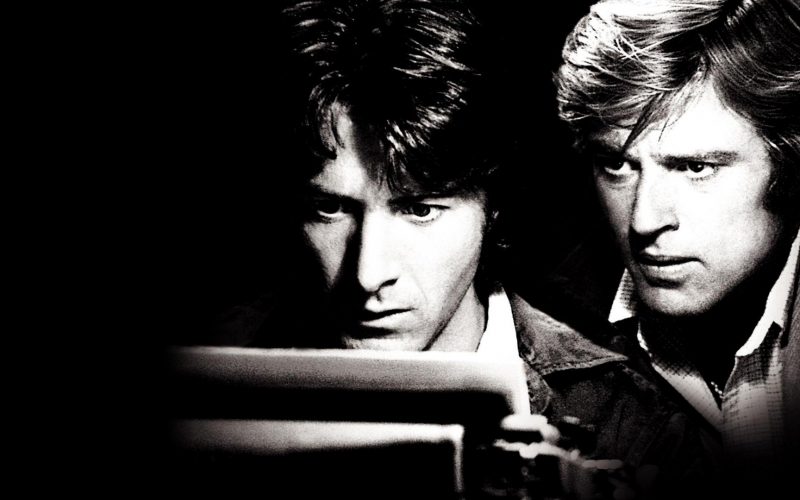All The President’s Men (1976).
“Get out your notebook, there’s more. Your lives are in danger.”
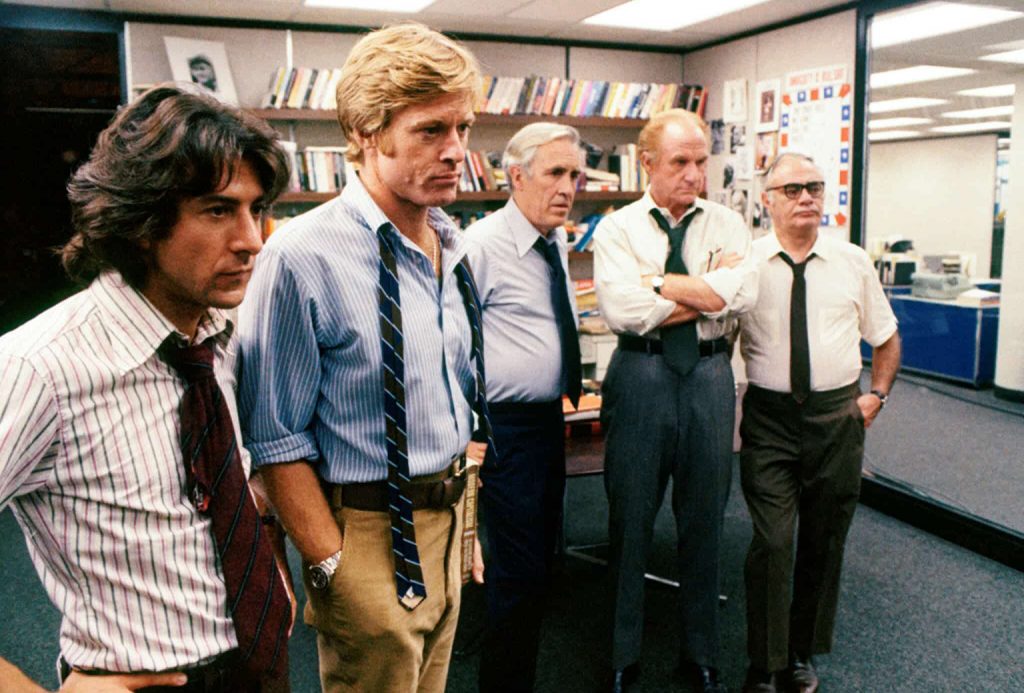
Verisimilitude
Noun;
the appearance of being true or real.
It’s a word I’ve often used in reviews as it fittingly describes a facet of certain films that gives them a hyper-realistic quality, a quality that I very much appreciate. That very same quality is one that permeates Alan J. Pakula’s 1976 dramatic re-telling of two Washington Post journalists whose investigative crusade into the break-in at the National Headquarters of the Democratic Party, more famously known as The Watergate Offices, in 1972, uncovers a scandal that would rock the world and ultimately unseat the 37th President of the United States, Richard Nixon. A president being unseated? The very thought of it!
Based on the novel of the same name written by the real life journos who conducted the investigation, Carl Bernstein and Bob Woodward, and adapted by William Goldman, the film was nominated for 8 Academy Awards, winning 4 and also winning 4 Golden Globes including Best Picture and Best Director. All The President’s Men was also a huge commercial as well as critical success.
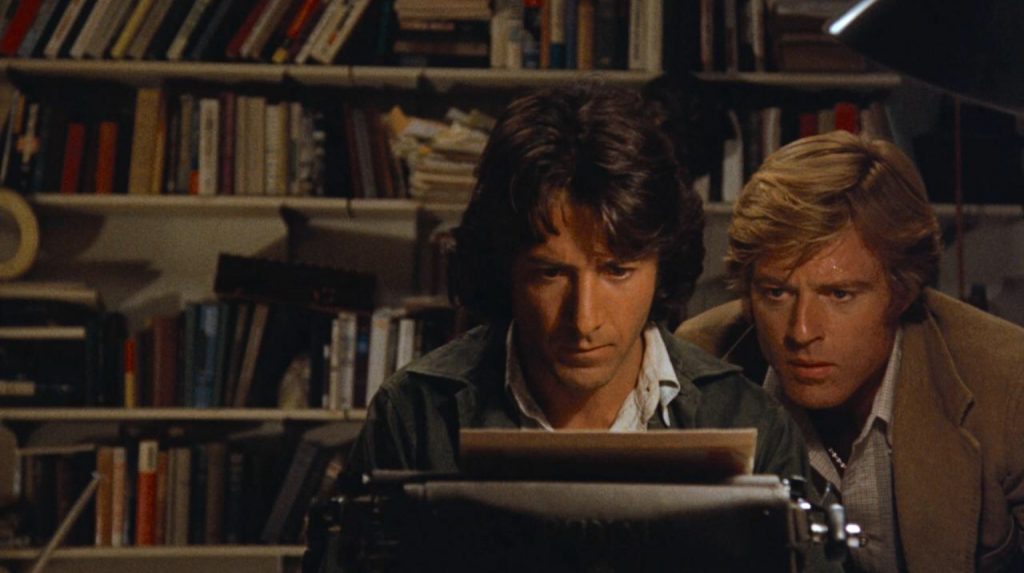
Many older readers may be familiar with the Watergate Scandal but for those who aren’t, at its most basic level, it involved political corruption and illegal activity aimed at preventing the Democratic presidential candidate at the time, who was up against Nixon’s re-election, from ever winning, thus ensuring Nixon continued to occupy the big seat in the White House.
[If you haven’t seen All The President’s Men but the general gist of this synopsis seems eerily familiar, don’t worry, it just means that you were alive in 2020!]
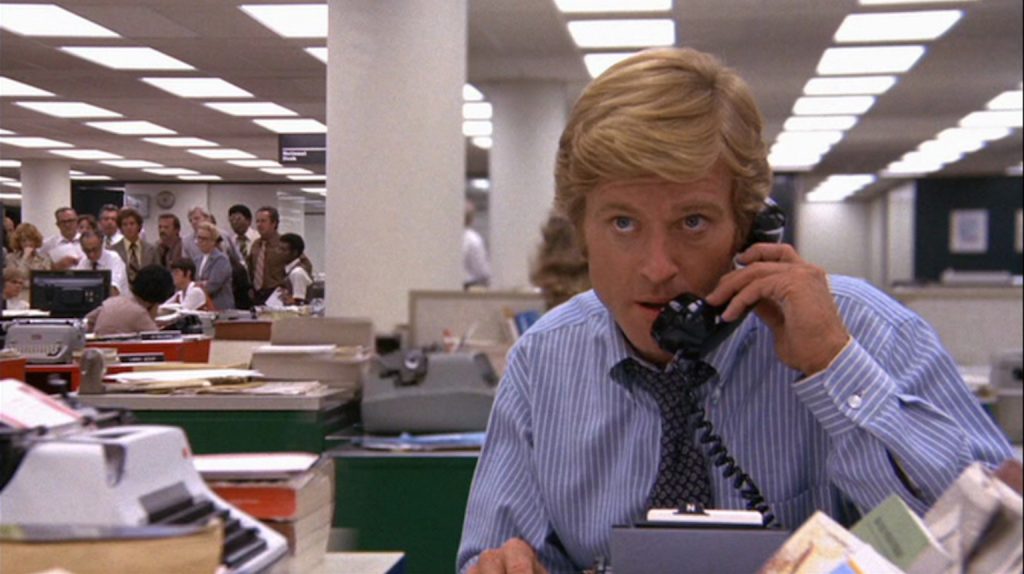
The most alarming thing was just how high reaching and widespread this corruption was, involving not only Nixon’s top advisors but the Attorney General, the FBI and the CIA. It was possibly the most damaging exposure of government corruption that the United States has ever faced and would lead to Nixon’s very public humiliation and resignation.
The two Washington Post journalists, Woodward and Bernstein, are played by Robert Redford and Dustin Hoffman respectively. Redford was, at the time, arguably the world’s biggest box office draw and this may be his best performance. Redford is matched by Hoffman whose jittery turn as Bernstein is as equally mesmerising to watch. Both actors bring an honesty and morally driven quality to each character that, coupled with the very real performances, makes it easy to get drawn into the events the film depicts, many of which, on paper at least, would’t be anywhere near as compelling to watch had the parts been played by lesser actors.
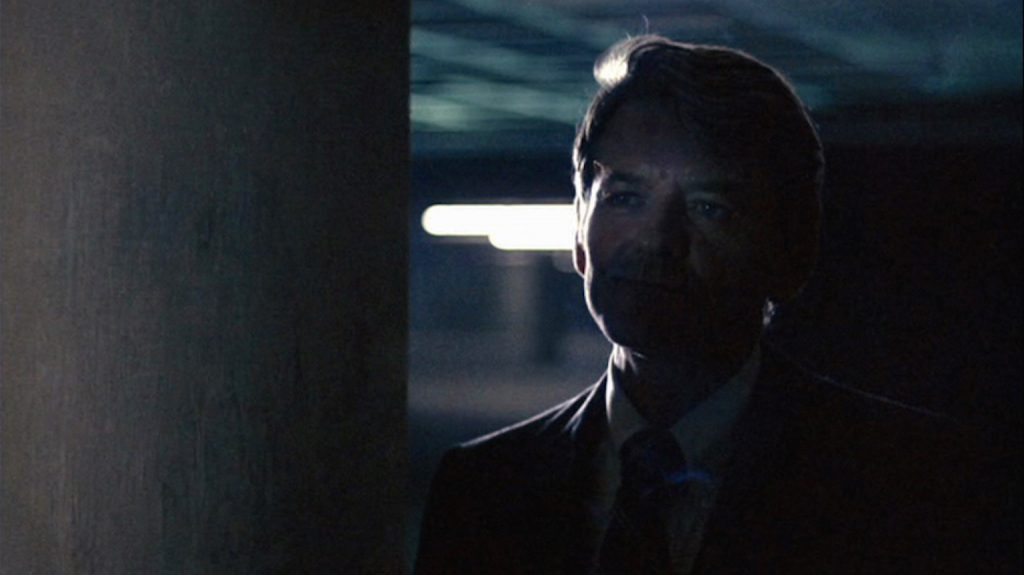
It’s the way that the two leads perfectly complement each other that provides the key dynamic that makes this film, one that primarily involves men talking in offices or on phones, so riveting. Woodward is personable, able to subtly yet deftly manipulate people for information. Bernstein has a preternatural ability to work wonders with the written word. The one provides what the other might lack and combined they make a very able journalistic entity, their commitment and drive for the truth the one thing they both have in abundance.
Aside from the weighty anchor of two powerhouse central performances, the real miracle here is the fortitude that the real life Woodward and Bernstein showed. These two men put not only their careers but their very lives on the line to uncover corruption at the very highest levels of government and the recognition they deserve for such bold heroism, and they really are heroes, simply cannot be understated.
Special mention must also go to the incredible supporting cast, all of whom dazzle in roles of varying size. Hal Holbrook as Woodward’s secret informant Deep Throat, Jack Warden as Woodward and Bernstein’s immediate superior, Harry Rosenfeld and Jason Robards as newspaper boss, Ben Bradlee who gives a performance worthy of the Best Supporting Actor Oscar he won for the film, dominating every scene he’s in.
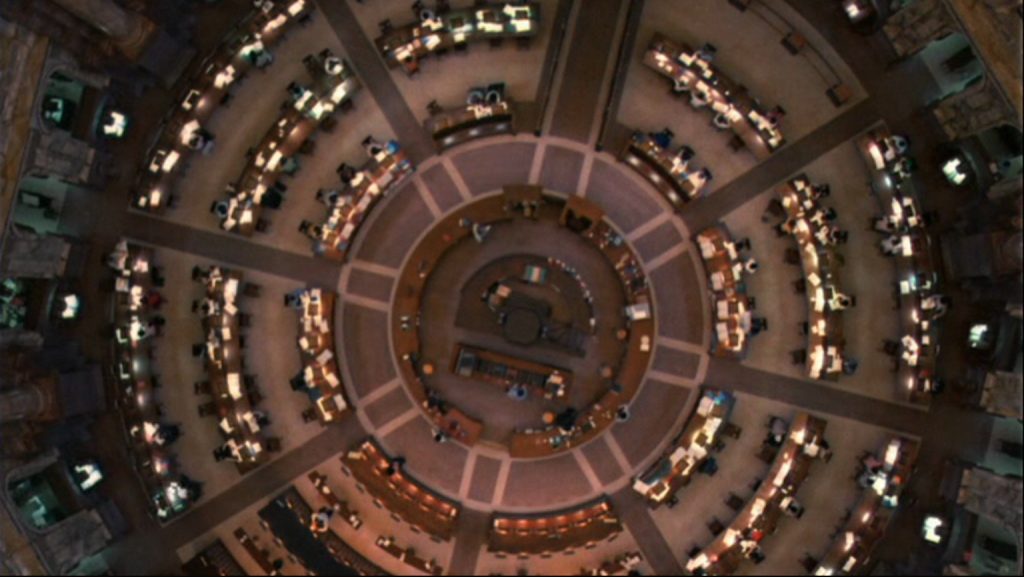
Pakula’s direction never falters. His and cinematographer Gordon Willis’ creative use of the camera with top-down POV pull backs being used to show how relatively small and insignificant our protagonists are but ultimately how important their actions will become, being one of many in-camera flourishes Pakula and Willis dazzle us with. Another is the use of the spilt diopter, where two planes of differing depth are shown in the camera, both in equal focus. Pakula uses this in two similar book-ending shots to show a TV in the left of frame showing an important moment in Nixon’s campaign, the other half of the frame shows Woodward and Bernstein in the background fervently typing away, the ultimate aim of their piece unknowingly tied to the fate of the man on the TV. It’s a superb juxtaposition that is so effective that Pakula used it twice.
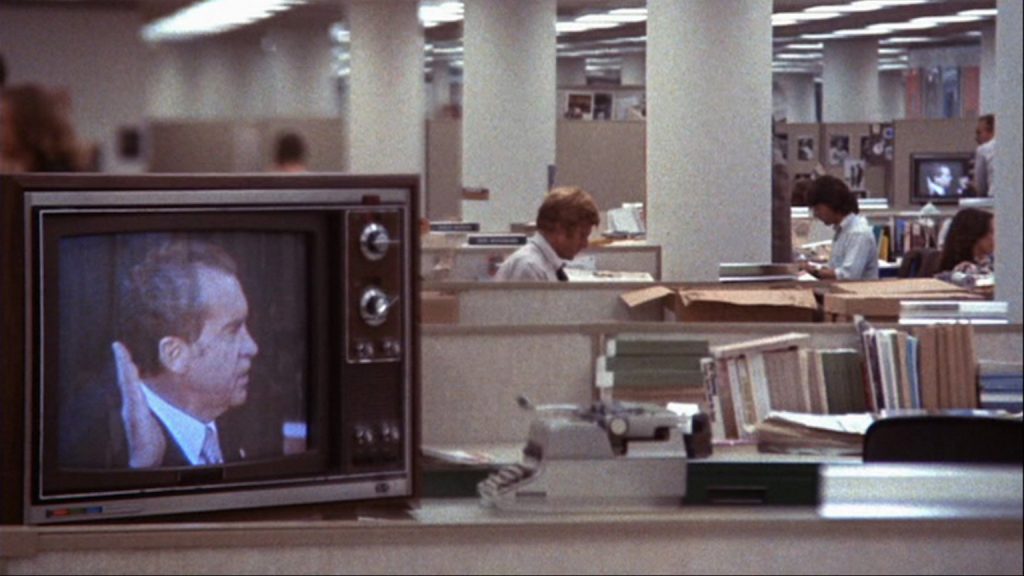
My only piece of admittedly minor criticism is that given the amount of time and effort the film asks the viewer to commit given its lengthy run time and complex plot, the end feels slightly unsatisfying, consisting of words being typed on a typewriter replacing the usual on-screen text that often forms a film’s coda. I just wish Pakula had chosen to show the very humiliating resignation speech that Nixon gave, this would have been the ultimate tribute to the reporters’ hard work and would have been a more rousing denouement to the film and would also have fit in perfectly with the previous two pieces of vintage televised footage of Nixon that Pakula so cleverly used.
I must emphasise though that this is merely a minor personal wish that the film had a slightly more impactful denouement and doesn’t change the fact that this is a superlative piece of filmmaking.
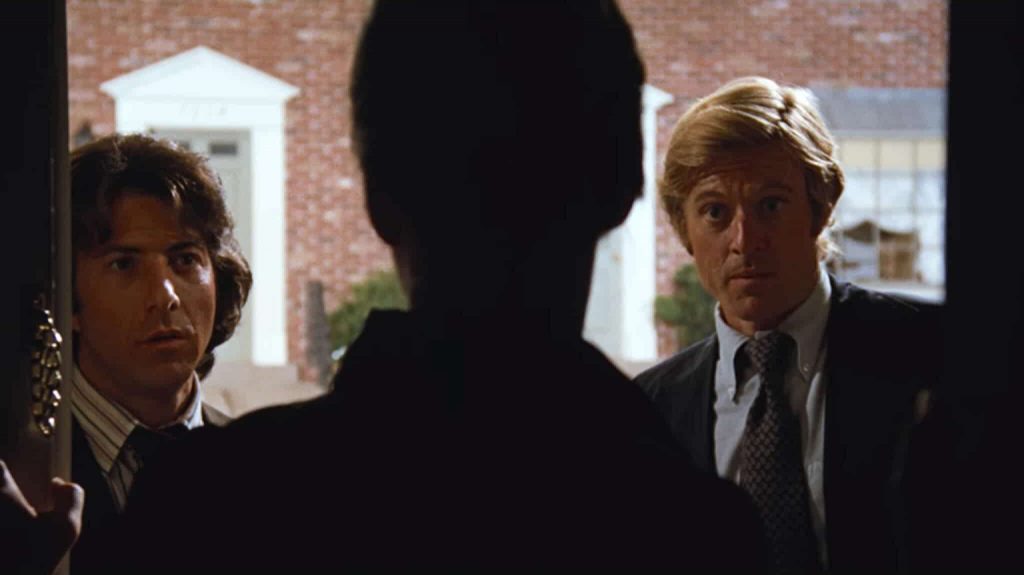
All The President’s Men isn’t a conventional thriller but more of a taught, almost documentary style retelling of two men facing insurmountable odds but whose drive and determination to find the truth led to the uncovering of one of the most shocking scandals in American history. It’s not only a superbly crafted film but also one whose subject matter is of extreme historical significance and, like all the best examples of political thrillers of this kind, one that remains eerily prescient in 2021.
Film ‘89 Verdict – 10/10

